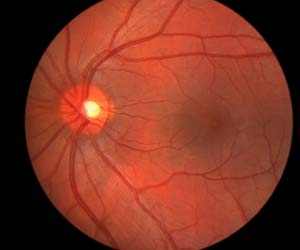
The molecule, they've discovered, is central to the inflammatory process that leads to the death of the cells in the human pancreas that produce insulin.
"This molecule does something remarkable -- it takes stress and makes it worse," said the senior author of the study, UCSF's Feroz Papa, MD, PhD, an associate professor of medicine at UCSF and a member of the UCSF Diabetes Center and the California Institute for Quantitative Biosciences (QB3).
The work provides a roadmap for finding new drugs that could target and shut down the action of TXNIP, thus preventing or stalling the inflammatory processes it amplifies.
Researchers in the field believe that this strategy could benefit people in the early days of the disease, when diabetes is first developing or is soon to develop-a time referred to as the "honeymoon" period.
Clinical studies have already shown that dietary changes and other approaches can extend the honeymoon period in some people and prevent diabetes in others. The overarching goal of Papa's research, he said, is to find a way to extend this honeymoon period indefinitely.
Advertisement
The study was published this week in the journal Cell Metabolism.
Advertisement












